

The Wayang Office Plaza, 5th Floor
Jl. Kedondong No. 5A, RT.11/RW.9
Rawamangun, Pulo Gadung
East Jakarta, DKI Jakarta 13220
Indonesia

Telp: +6221 388-590-01
WhatsApp: +62 899-3300-033
WhatsApp SNI: +62 857-7042-1713

Opening : Mon – Fri, 8:00 – 16:00
Author: Admin
-
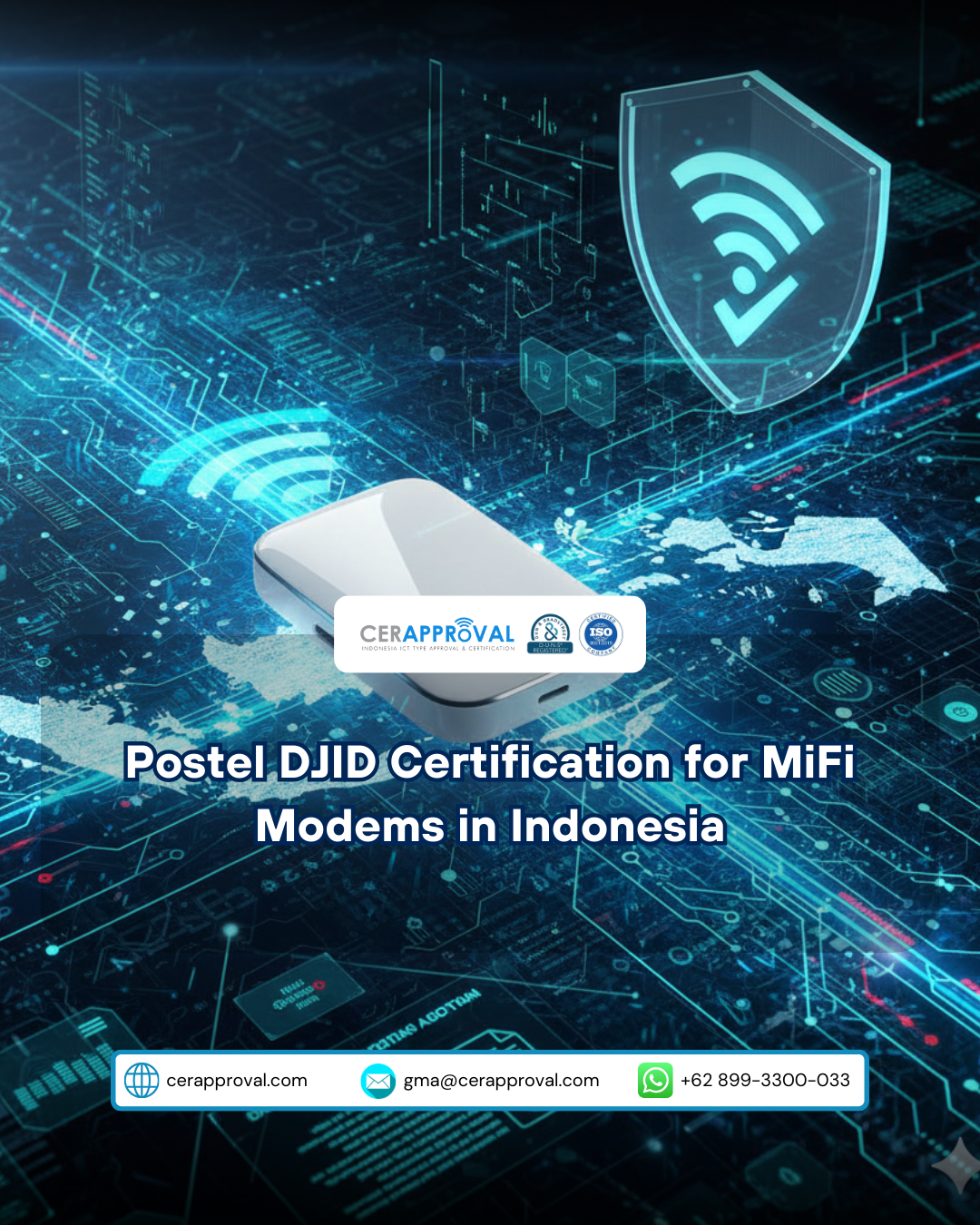
Postel DJID Certification for MiFi Modems in Indonesia
As digital connectivity continues to grow, Modem MiFi (Mobile WiFi) devices have become essential tools for both personal and business use. However, before a MiFi modem can be legally marketed and distributed in Indonesia, it must comply with national regulations, including obtaining Postel DJID Certification. This certification is issued by the Directorate General of Digital…
-
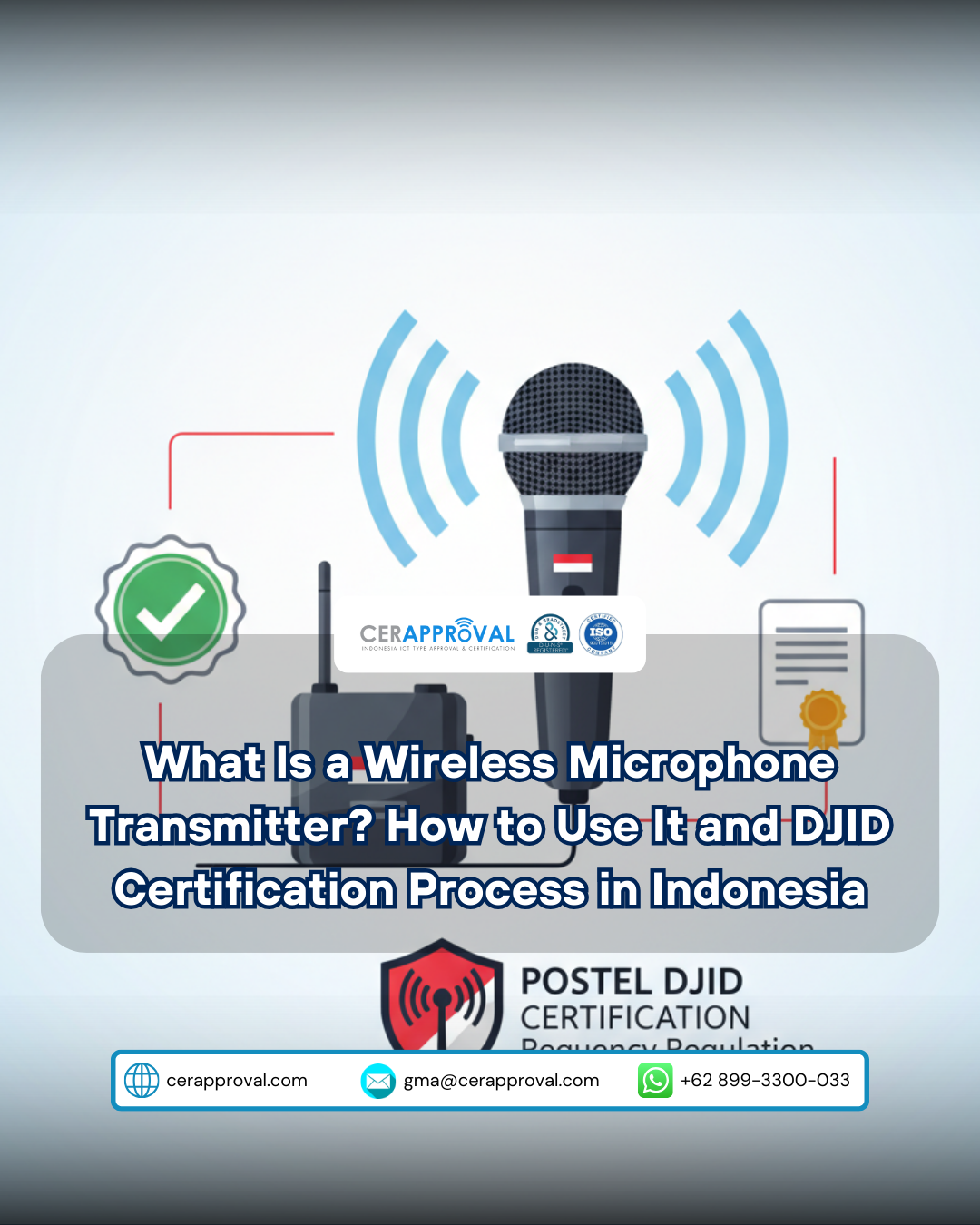
What Is a Wireless Microphone Transmitter? How to Use It and DJID Postel Certification Process in Indonesia
Wireless audio technology has become an essential part of modern communication and entertainment industries. One of the most widely used devices is the wireless microphone transmitter, commonly found in broadcasting, live events, education, and religious venues. However, in Indonesia, these devices are regulated and must obtain DJID Postel Certification before being marketed or used commercially.…
-
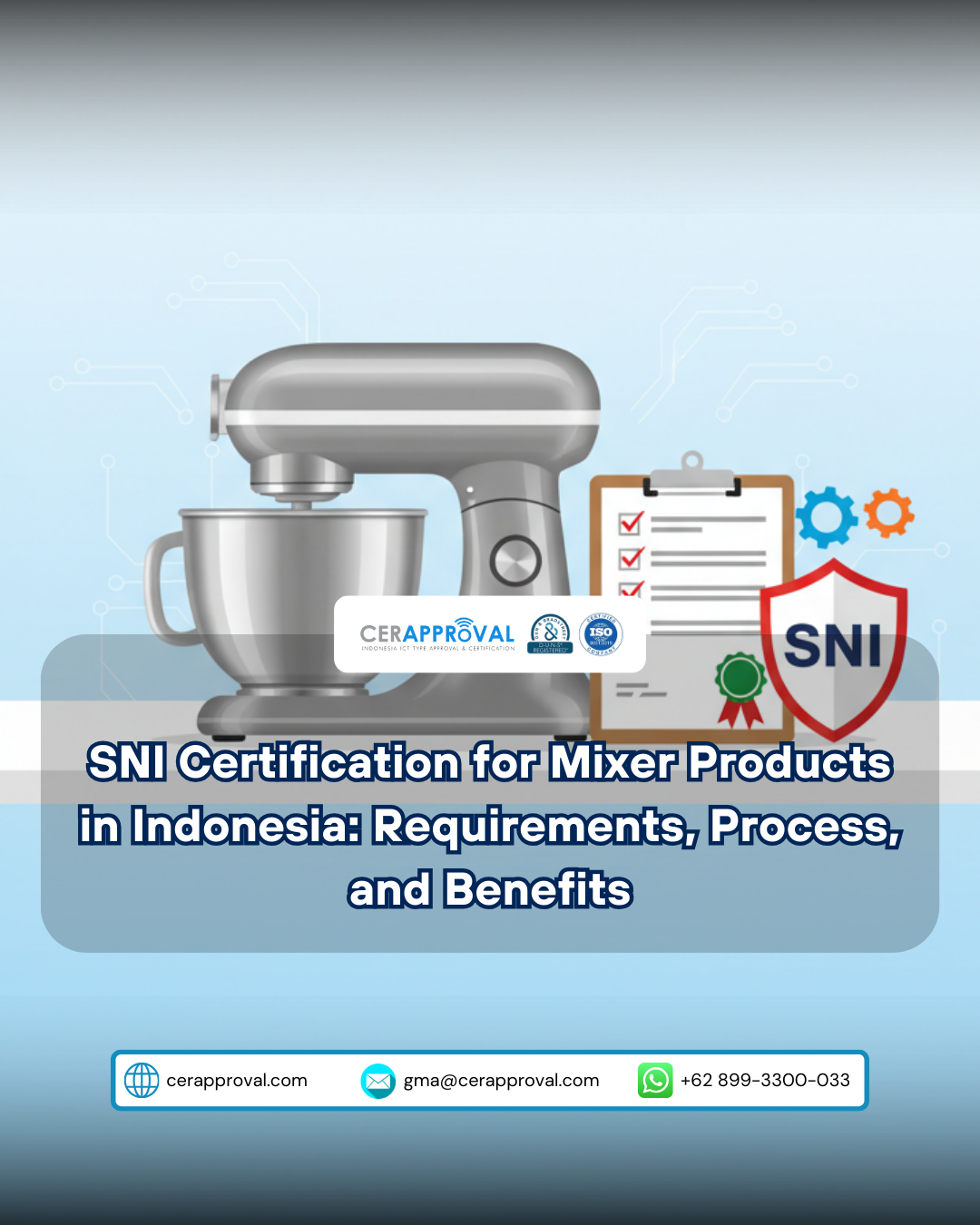
SNI Certification for Mixer Products in Indonesia: Requirements, Process, and Benefits
Mixer products are widely used in Indonesia, ranging from household kitchens to commercial food and beverage industries. Due to their electrical nature and direct interaction with users, mixer products must comply with Indonesian National Standards (SNI) to ensure safety, quality, and performance. This article provides a complete guide to SNI Certification for Mixer Products in…
-
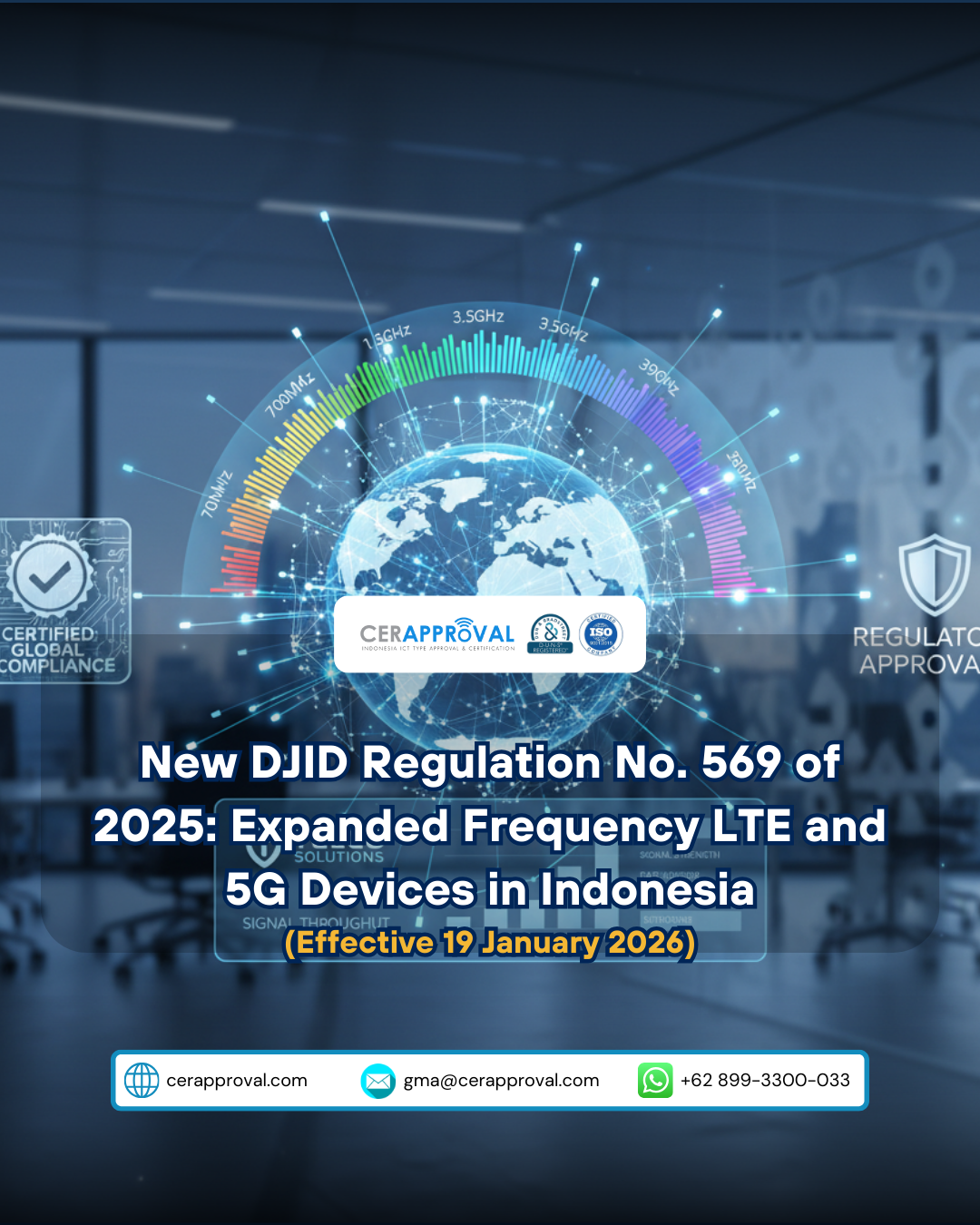
New DJID Regulation No. 569 of 2025: Expanded Frequency Bands and Bandwidth for LTE and 5G Devices in Indonesia
The Government of Indonesia, through the Ministry of Communication and Digital Affairs (Komdigi), has officially issued DJID Regulation No. 569 of 2025 as the latest technical standard for 4G LTE and 5G NR telecommunication devices. This regulation replaces the previous DJID Regulation No. 352 and will come into effect on January 19, 2026. This regulatory…
-
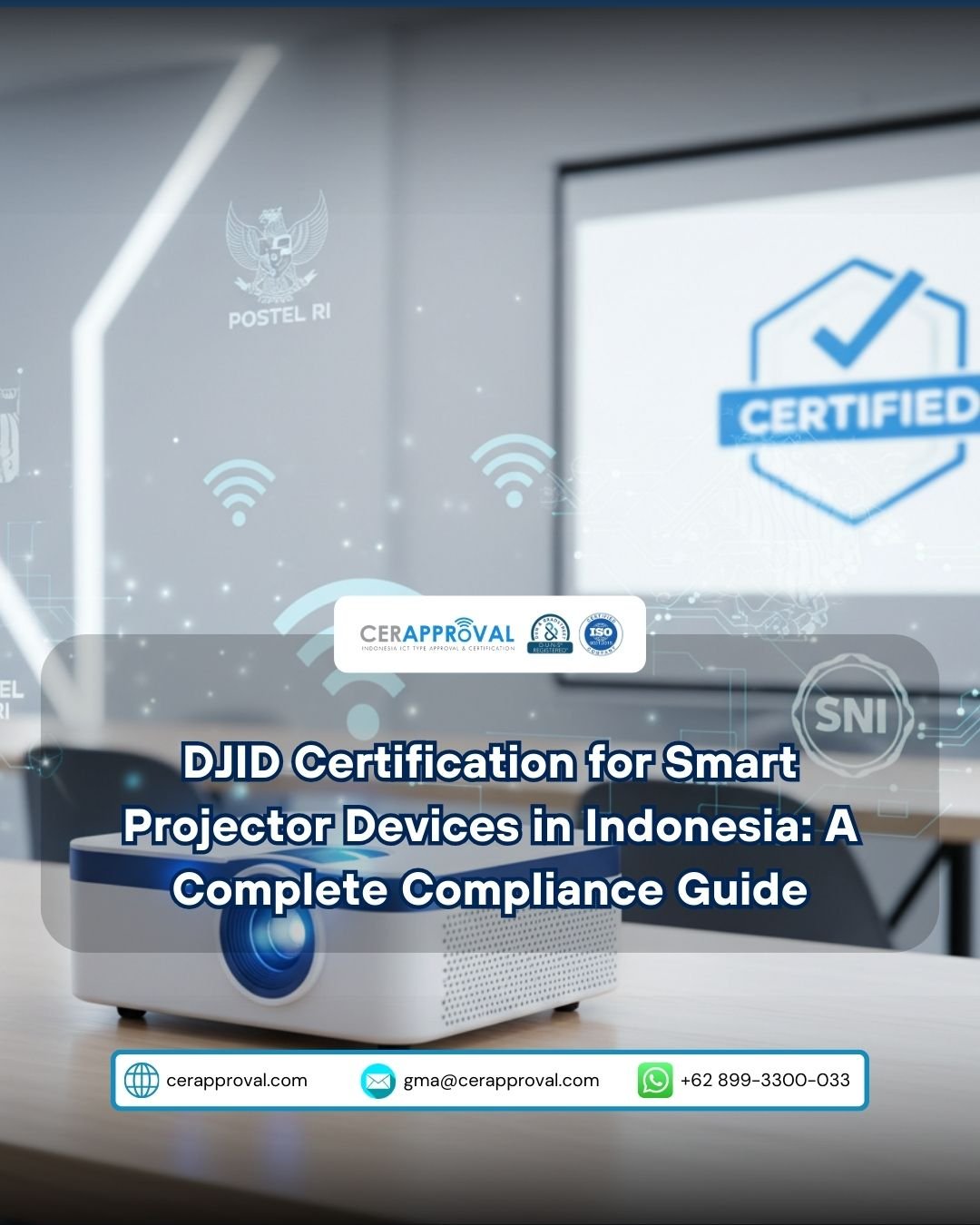
DJID Certification for Smart Projector Devices in Indonesia: A Complete Compliance Guide
As smart visual technology continues to evolve, smart projectors are increasingly used across education, corporate environments, and home entertainment. However, before any smart projector device can be legally marketed in Indonesia, it must comply with mandatory regulations, including DJID Certification issued by the Directorate General of Digital Infrastructure (Komdigi). DJID certification ensures that telecommunication-enabled devices…
-
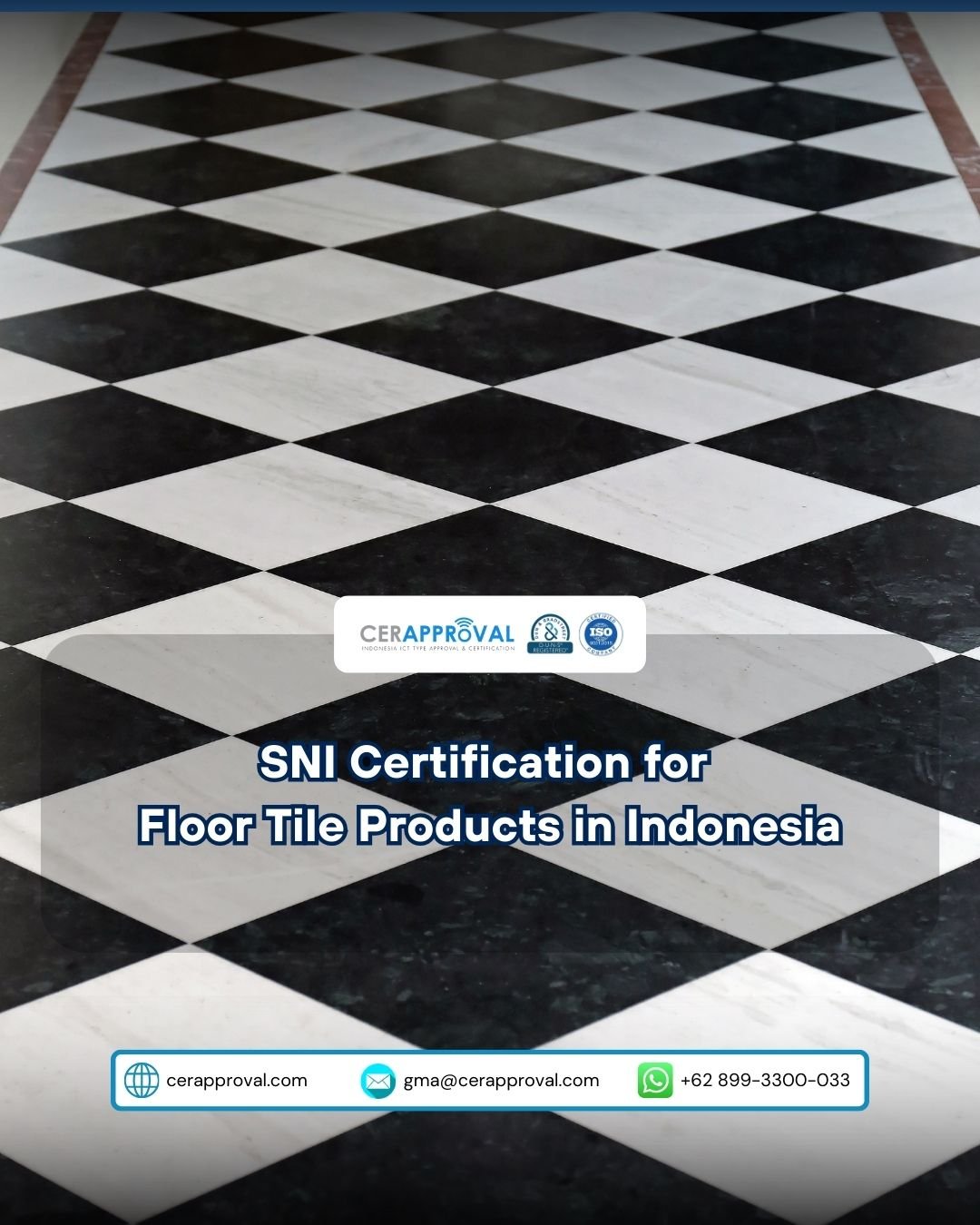
SNI Certification for Floor Tile Products in Indonesia
Floor tiles are essential building materials widely used in residential, commercial, and industrial construction projects. In Indonesia, certain types of floor tile products are required to comply with the Indonesian National Standard (SNI) to ensure product quality, safety, and durability. This article by Cerapproval, a professional certification agency, provides a comprehensive guide to SNI certification…
-
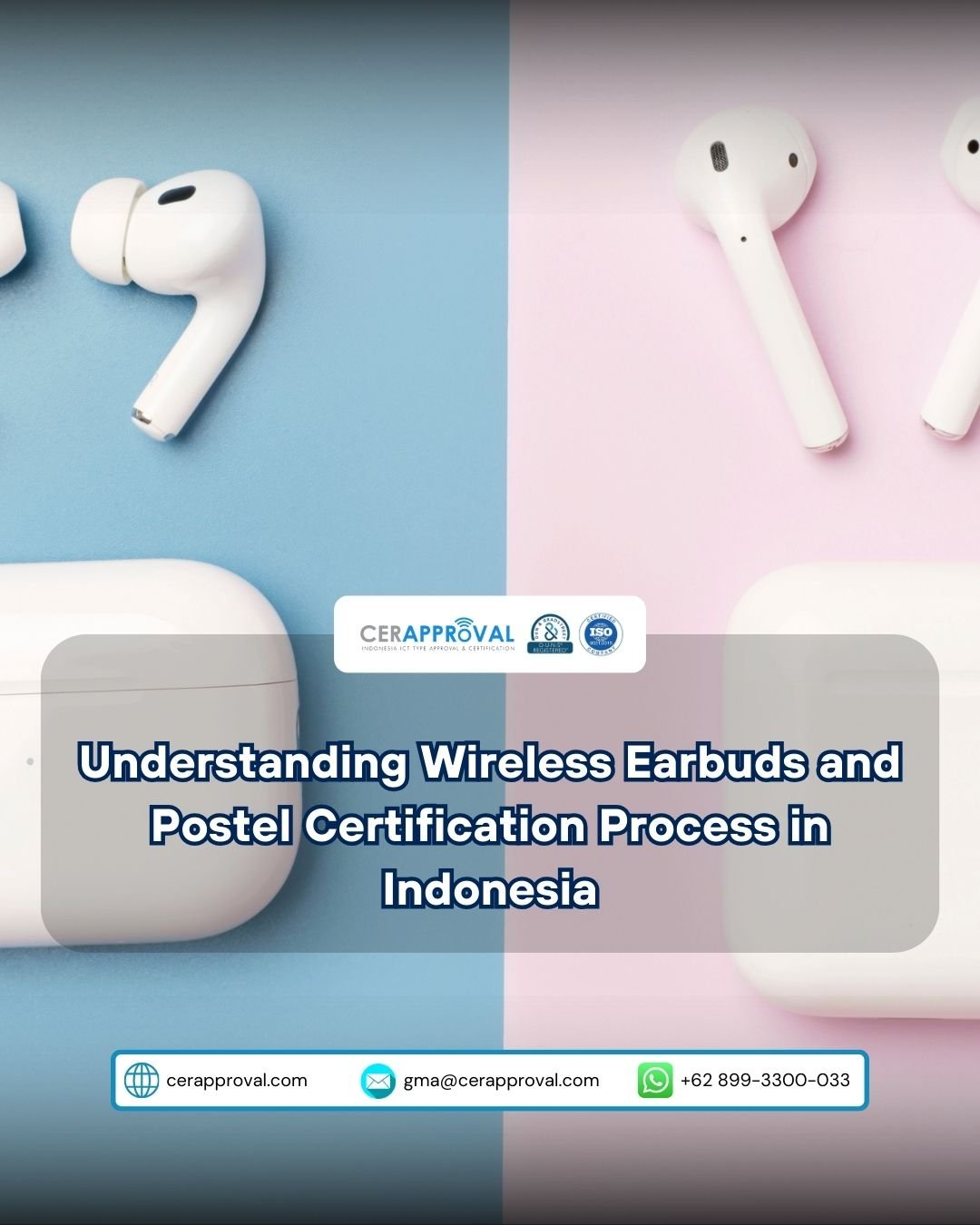
Understanding Wireless Earbuds and Postel Certification Process in Indonesia
Wireless earbuds have rapidly become one of the most popular consumer electronic devices worldwide, including in Indonesia. Utilizing Bluetooth wireless technology, these devices fall under the category of telecommunications equipment. Therefore, before being distributed or sold in Indonesia, wireless earbuds must obtain Postel Certification (SDPPI Certification) issued by the Indonesian Ministry of Communication and Digital…
-

Cerapproval Service Price Adjustment Announcement Effective January 5, 2026
Cerapproval hereby announces an update to its service pricing, which was implemented on January 5, 2026. This adjustment reflects the company’s ongoing efforts to align its services with evolving regulatory requirements, industry standards, and client expectations. As certification and product compliance processes continue to develop in scope and complexity, Cerapproval consistently enhances its operational systems,…
-
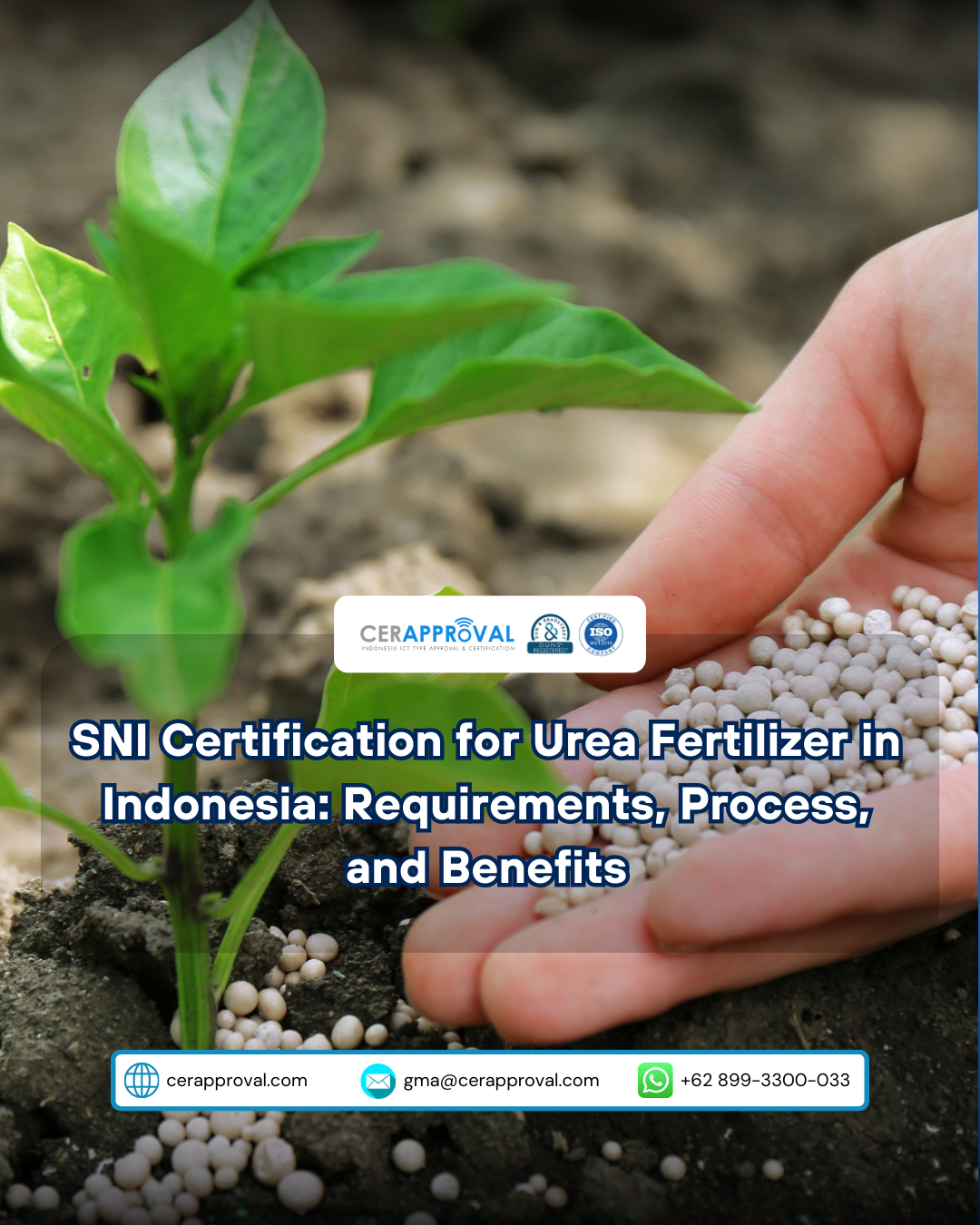
SNI Certification for Urea Fertilizer in Indonesia: Requirements, Process, and Benefits
Urea fertilizer is one of the most widely used nitrogen fertilizers in Indonesia’s agricultural sector. Its high nitrogen content plays a crucial role in increasing crop yields for food crops, horticulture, and plantations. Due to its strategic importance, the Indonesian government mandates that urea fertilizer products distributed in the domestic market comply with the Indonesian…
-
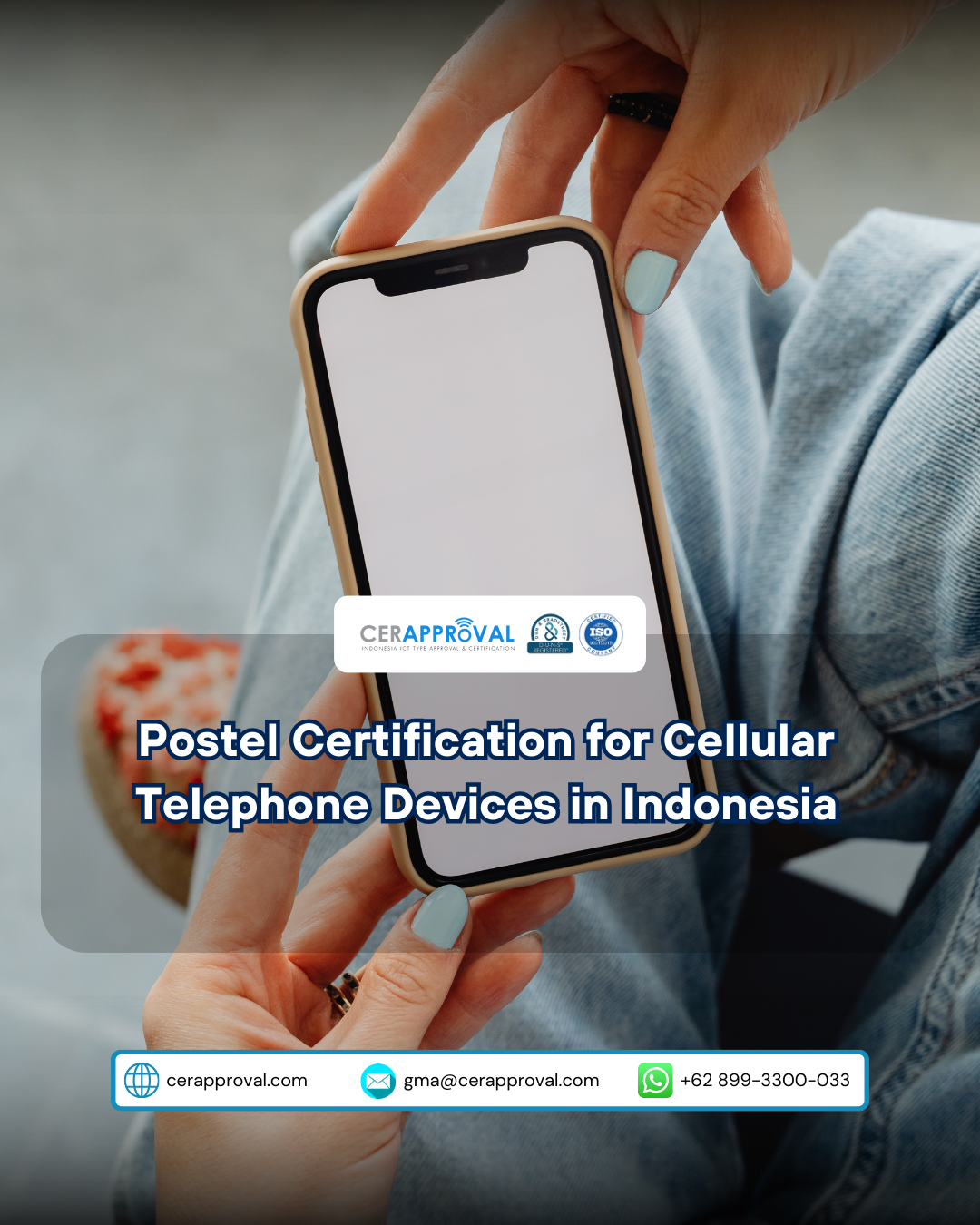
Postel Certification for Cellular Telephone Devices in Indonesia
The Indonesian mobile device market continues to grow rapidly along with the advancement of digital communication technology. However, before a cellular telephone device (mobile phone) can be legally distributed in Indonesia, it must obtain Postel Certification from the Ministry of Communication and Digital. Postel Certification ensures that mobile devices comply with national technical standards, radio…
Ready To Start New Project With Intrace?
Lorem ipsum dolor sit amet, consectetur adipiscing elit, sed do eiusmod tempor incididunt ut labore et dolore magna aliqua.
